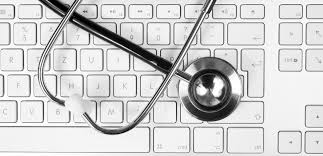**Title: Comprehensive Guide to Medical Billing and Practice Management**
**Introduction:**
In the fast-paced and complex world of healthcare, medical billing and practice management play a crucial role in ensuring the financial success and operational efficiency of medical practices. From submitting claims to insurance companies to managing patient appointments, medical billing and practice management encompass a wide range of tasks that require precision, attention to detail, and adherence to ever-changing regulations.
**What is Medical Billing and Practice Management?**
Medical billing is the process of submitting and following up on claims with health insurance companies to receive payment for services rendered by healthcare providers. Practice management, on the other hand, involves overseeing the day-to-day operations of a medical practice, including scheduling appointments, managing patient records, and coordinating billing and coding efforts. Together, medical billing and practice management ensure that healthcare providers are reimbursed for their services in a timely and accurate manner.
**Benefits of Effective Medical Billing and Practice Management:**
1. Increased Revenue: Proper billing and coding practices can help healthcare providers maximize their reimbursement rates and minimize claim denials, ultimately leading to increased revenue for the practice.
2. Improved Patient Experience: Efficient practice management can streamline the patient intake process, reduce wait times, and enhance overall patient satisfaction.
3. Regulatory Compliance: Staying up-to-date with the latest healthcare regulations and coding guidelines is crucial for maintaining compliance and avoiding costly penalties.
**Practical Tips for Effective Medical Billing and Practice Management:**
1. Invest in Training: Ensure that your staff is well-trained in medical billing and coding practices to minimize errors and optimize reimbursement rates.
2. Use Technology: Implement a reliable practice management software system to streamline billing processes, track claims, and manage patient data efficiently.
3. Stay Informed: Keep abreast of changes in healthcare regulations and coding guidelines to ensure compliance and prevent claim denials.
**Case Study:**
For example, a small medical practice in a rural community implemented a new practice management software system that allowed them to automate billing processes and reduce claim denials. As a result, the practice saw a significant increase in revenue and improved patient satisfaction ratings.
**First-Hand Experience:**
As a healthcare provider, I have witnessed firsthand the impact that effective medical billing and practice management can have on the financial health and operational efficiency of a medical practice. By investing in training, utilizing technology, and staying informed, healthcare providers can navigate the complexities of medical billing and practice management with confidence.
**Conclusion:**
medical billing and practice management are essential components of running a successful healthcare practice. By implementing best practices, staying informed, and utilizing technology, healthcare providers can optimize reimbursement rates, improve patient satisfaction, and ensure compliance with healthcare regulations. By prioritizing effective medical billing and practice management, healthcare providers can achieve financial success and provide high-quality care to their patients.



